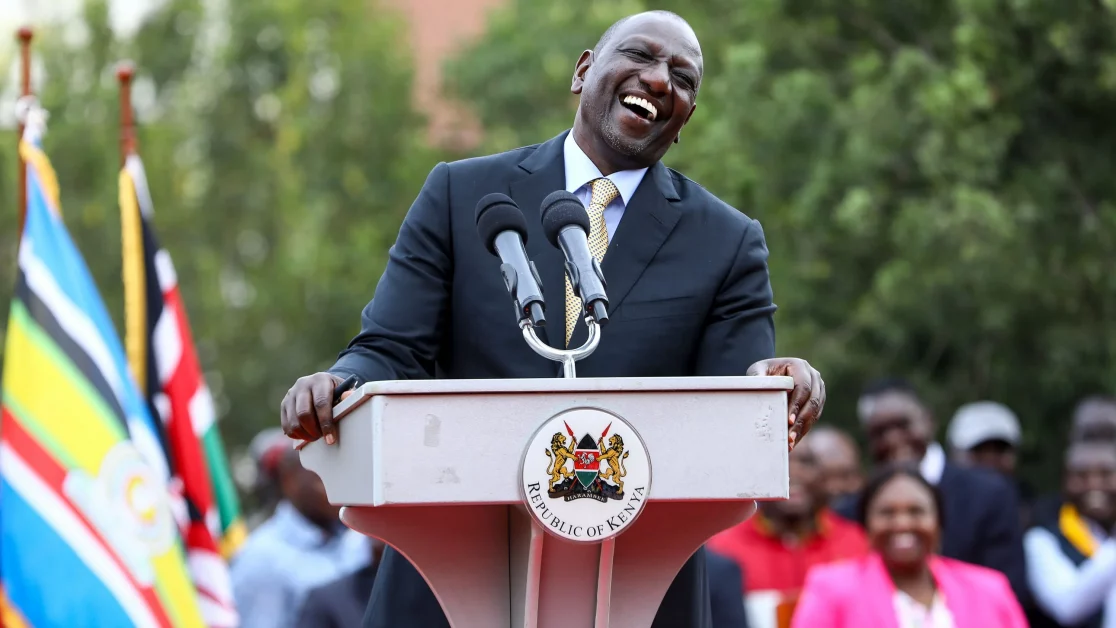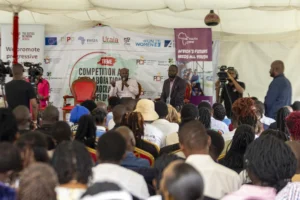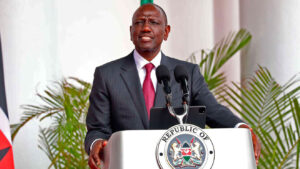By Cynthia Peter
As President H.E Ruto took the oath of office as the 5th president of Kenya a few days ago, he made promises to farmers. one H.E Ruto said he would ensure the availability of farming inputs like fertilizer to all farmers across the country.
His Ugandan counterpart Yoweri Kaguta Museveni did hint at the need for the creation of regional markets for agricultural products. This begs the question of how can local farmers have access to the East African Community market as a way of creating jobs for the youth
Whereas most youth today in the African continent prefer technology-related jobs, Agriculture is the single-largest source of income for rural Africans and contributes to a quarter of the continent’s gross domestic product.
The sector occupies more than 70 percent of the labor force in Africa’s low-income countries and contributes to food security and poverty reduction.
Despite the prevalence of agriculture, the World Bank states that 80% of the world’s rural poor earn a living through farming, and the sector employs half the rural population of the entire continent of Africa.
Most smallholder farmers live in poverty, operating crop and livestock farms that aren’t as productive as they could be and missing out on critical opportunities to contribute to their larger food systems.
However, expansion of the agriculture sector can boost the incomes of poor families two to four times more effectively than other industries, and two out of three young people outside urban areas in developing countries live where there is the most agro-ecological potential, and the role of youth in agriculture is, in fact, that of immense possibility to grow more food, transform local food systems and build economies that lift entire communities out of poverty.
Consequently, rural areas are in need of numerous programs to enhance the empowerment of youth residing in these locales.
Rural youth should be motivated to embrace agriculture by finding agriculture an attractive mode of enterprise. Donkey farming is one of the many agricultural enterprises that the youth could be motivated to venture into.
According to a study done by KARLO, working donkeys are a critical source of income for owners and users. Donkey owners and users earn 87%of their annual gross income from commercial donkey transporting. This translates to Ksh239,475pa working an average of six days per week. Households in which donkey owners hire laborers to engage in a range of activities earn about 46% of the household annual income from commercial donkey transporting activities. This translates to Ksh 140,400 annual income from donkey activities per household. Casual donkey laborer household gets 69%of their annual cash from casual labor associated with commercial donkey transporting translating to Ksh 117,000.
Working donkeys also provide a saving, that is derived from the use of donkeys to perform tasks that, if they were not donkey owners, would require an animal to be hired for money from another source and /or involve additional time by the owner’s family to complete. donkey- owning households, on average, use their animal for non-commercial activities for about 660hours throughout the year.
Donkey-owning household meets their food, non-food item, and other resources needed mostly through income generated by working donkeys. The study found that annual income from donkey-related activities supports the household in the purchase of food, household items, and payment of social services (which includes education and health care costs). Housing, airtime, clothing, and rent (housing cost).
From the study; Donkey owners and users, or households that own donkeys and use them for commercial (and non-commercial) purposes and Boda Boda households allocate approximately 30% and 25% respectively of their annual income to purchase food. Donkey owners that hire laborers to perform donkey-related income earning activities earmarked almost 45% of household income towards food purchases. Donkey laborers that earn a daily wage in exchange for driving a donkey-pulled cart to allocate nearly 55% of annual expenditure to purchasing food.
With these statistics, it is evident that donkey farming is a lucrative agricultural enterprise for the youth. KENDAT has been at the forefront of educating young people on embracing donkey farming to enhance their livelihoods.
We have been doing this through sports and awareness of Alcohol and drug abuse as a way of motivating the young people towards embracing donkey farming, especially in Mwea and Nairobi where donkeys form an integral part of the daily activities of these towns. The government however needs to streamline the policies around donkeys as a way of inclusivity for the young generation.
Cynthia Peter-Community Development Officer-KENDAT
About the Author
Kwabe Victor
Contributor
Multimedia Journalist. Aspiring documentary/Investigative journalist, currently immersed in writing Political, Business and Human Interest Stories. Speak Life.
















